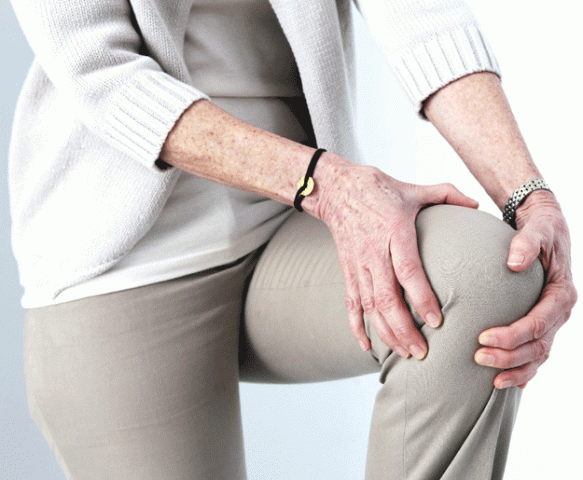6 reasons why your knees hurt
Read on for science-backed, knee-saving tips that’ll get you up and running in no time

PHOTO: FILE
You’ve packed on pounds
One rule to live by — maintain a healthy weight at all times. Did you know that every extra pound you pack on puts about four extra pounds of pressure on your knees when you walk or take the stairs. “Women often come in complaining of knee pain, and it turns out it started after they put on just five or 10 pounds,” says Sara Edwards, an orthopedic surgeon at Northwestern Memorial Hospital in Chicago. Once you shed that excess weight, symptoms undoubtedly improve and sometimes even disappear.
You hurry up and down the stairs
Unless you’re in great shape, this puts serious stress on your kneecaps: “If you weigh 150 pounds, that can mean as much as 600 pounds going through your knees,” says Robert Gotlin, director of orthopedic and sports rehabilitation at Beth Israel Medical Center in New York City. Walk slowly and make sure to land on your heel as opposed to the toes. If you’ve already been cursed by knee pain due to this reason, make sure to hold onto the railing for added support for a week or two, until you get better. Gripping railings takes the pressure off your knees by not overworking your quads while you climb.
6 beauty trends to try right now
You’re a squatting machine
More common in women than in men — a combination of wide hips and weak inner and outer thighs makes this mistake pretty much ever-present among women. Unfortunately, when your knees move in toward each other during a squat, it can put undue pressure on your knee ligaments, resulting in injury, says exercise physiologist Marta Montenegro. But correcting this mistake isn’t as simple as willing your knees into place. You need to strengthen your inner and (especially) outer thighs, she says. Lunges and medicine balls are great for this! Also, never bend your leg beyond a 90-degree angle and make sure your knee stays directly over your foot.
You’re deficient in vitamin E
Vitamin E might be not as famous as its other vitamin counterparts but it is scientifically proven for its robust antioxidant powers. A study published in the International Journal of Rheumatic Diseases compared the knees of 42 people undergoing knee surgery: 32 with severe osteoarthritis and 10 with non-arthritis injuries. Researchers found less vitamin E in the knees of the osteoarthritis patients, implying that they were getting less of the vitamin’s protective benefits. Almonds, sunflower seeds and oil, peanuts and spinach are all excellent sources of vitamin E. Start E-ing up now so you don’t end up being a ‘knee patient’ later in life.
5 home design tips to help you shed fat
You skimp on milk
Vitamin D, which is brimming in moo juice, is found in cells throughout the body. A study published in the Journal of Clinical Rheumatology studied 1,248 people age 55 and older looked at how their knee health changed over a period of about seven years. Those with a low amount of vitamin D in their diet were at increased risk for worsening knee osteoarthritis. If you’re lactose intolerant or can’t stand dairy, fatty fish, such as salmon, tuna and mackerel are great non-milk sources of the vitamin.
You’re not getting your citrus fix
Do you not remember when you last devoured oranges? Your knees won’t be happy to discover this! Vitamin C is well known as an essential nutrient that is required for facilitating countless functions of the body. One study published in the journal Arthritis Research and Therapy looked at 293 healthy, middle-aged adults. Knee MRIs performed 10 years apart showed that people who reported consuming less vitamin C had more change in their leg bones — thought to be a precursor to the cartilage loss that marks knee osteoarthritis. Oranges, bell peppers, grapefruit and strawberries (which are gracing Pakistan currently!) all contain vitamin C.
Published in The Express Tribune, February 11th, 2016.
Like Life & Style on Facebook, follow @ETLifeandStyle on Twitter for the latest in fashion, gossip and entertainment.



















COMMENTS
Comments are moderated and generally will be posted if they are on-topic and not abusive.
For more information, please see our Comments FAQ